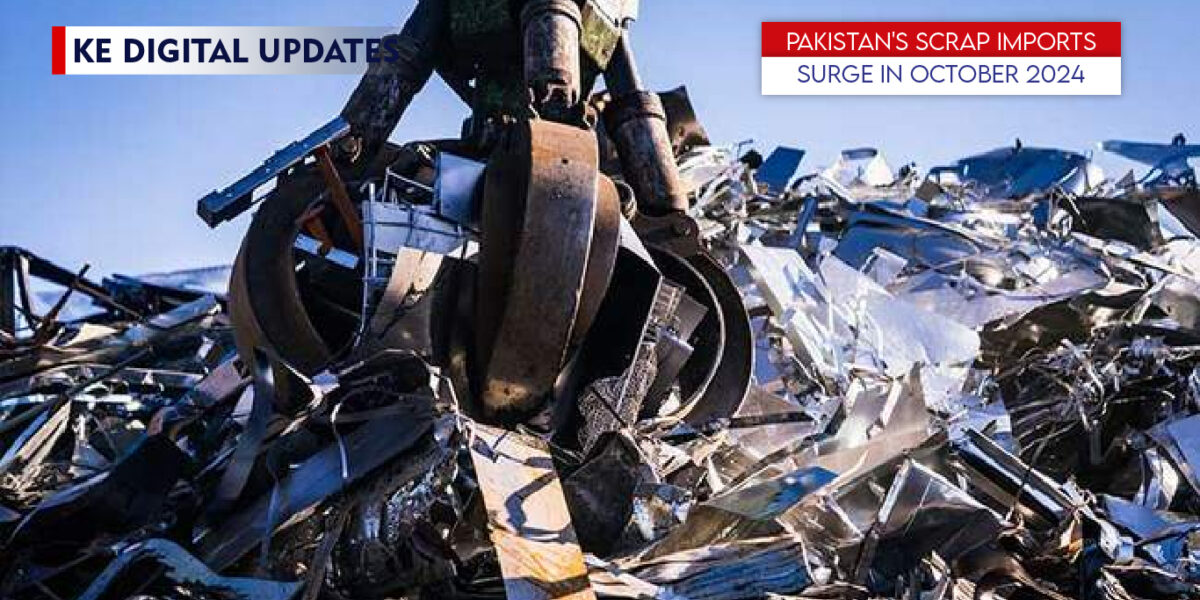Published on November 20, 2024
In October 2024, Pakistan experienced a significant rise in scrap imports, marking a notable development in the country’s steel industry. According to data released by the Pakistan Federal Bureau of Statistics (PFBS), the country imported 228,217 metric tons of scrap this month. This figure represents a substantial increase of 15.6% from the previous month, although it reflects a year-over-year decrease of 4.8%. The total value of these imports stood at $101.56 million, showing a 6.8% month-over-month increase but a 5.9% decline from last year.
Rising Imports Amid Economic Challenges
The increase in scrap imports highlights the ongoing demand for raw materials within Pakistan’s steel industry despite economic challenges such as currency depreciation and fluctuating global market conditions. The rise in import volume suggests that local steel producers seek to meet the demands of various sectors, including construction, manufacturing, and infrastructure development.
Iron and Steel Imports Also on the Rise
In addition to the surge in scrap imports, Pakistan imported 327,872 metric tons of iron and steel in October 2024. This represents a significant increase of 22.5% from the previous month and a 23.2% rise compared to last year. The value of these imports was $208.48 million, reflecting a 12.8% month-over-month increase and a 14.3% year-over-year growth.
Economic Implications
The rise in scrap iron and steel imports underscores Pakistan’s robust demand for these materials. However, it also highlights the economic pressures faced by the steel industry. The need for imported raw materials can strain the country’s foreign exchange reserves, especially amid rising global prices and a depreciating local currency. The cost of imports could increase production costs for local steel manufacturers, potentially impacting end-cons’ prices.
Local Industry Response
The increase in imports has significant implications for the local steel industry. Industry players are likely to adjust their strategies to cope with the rising costs and ensure they can meet domestic demand. The government’s recent introduction of a sales tax on billets produced from local scrap aims to regulate the informal segment of the local steel manufacturing industry. However, delays in issuing the necessary statutory regulatory order (SRO) have left steel producers uncertain.
Challenges and Opportunities
The import surge presents challenges and opportunities for Pakistan’s steel industry. On one hand, the increased availability of raw materials can support production and help meet the growing demand. On the other hand, the rising cost of imports due to global market fluctuations and currency depreciation poses a challenge for local producers. The government’s efforts to regulate the industry and curb tax evasion are crucial for creating a level playing field and ensuring sustainable growth.
Conclusion
In conclusion, the significant rise in scrap iron and steel imports in October 2024 highlights the dynamic nature of Pakistan’s steel industry. While the increased imports reflect strong domestic demand, they also underscore the sector’s economic challenges. The government and industry players must work together to address these challenges, support local production, and ensure the sustainable growth of Pakistan’s steel industry.


